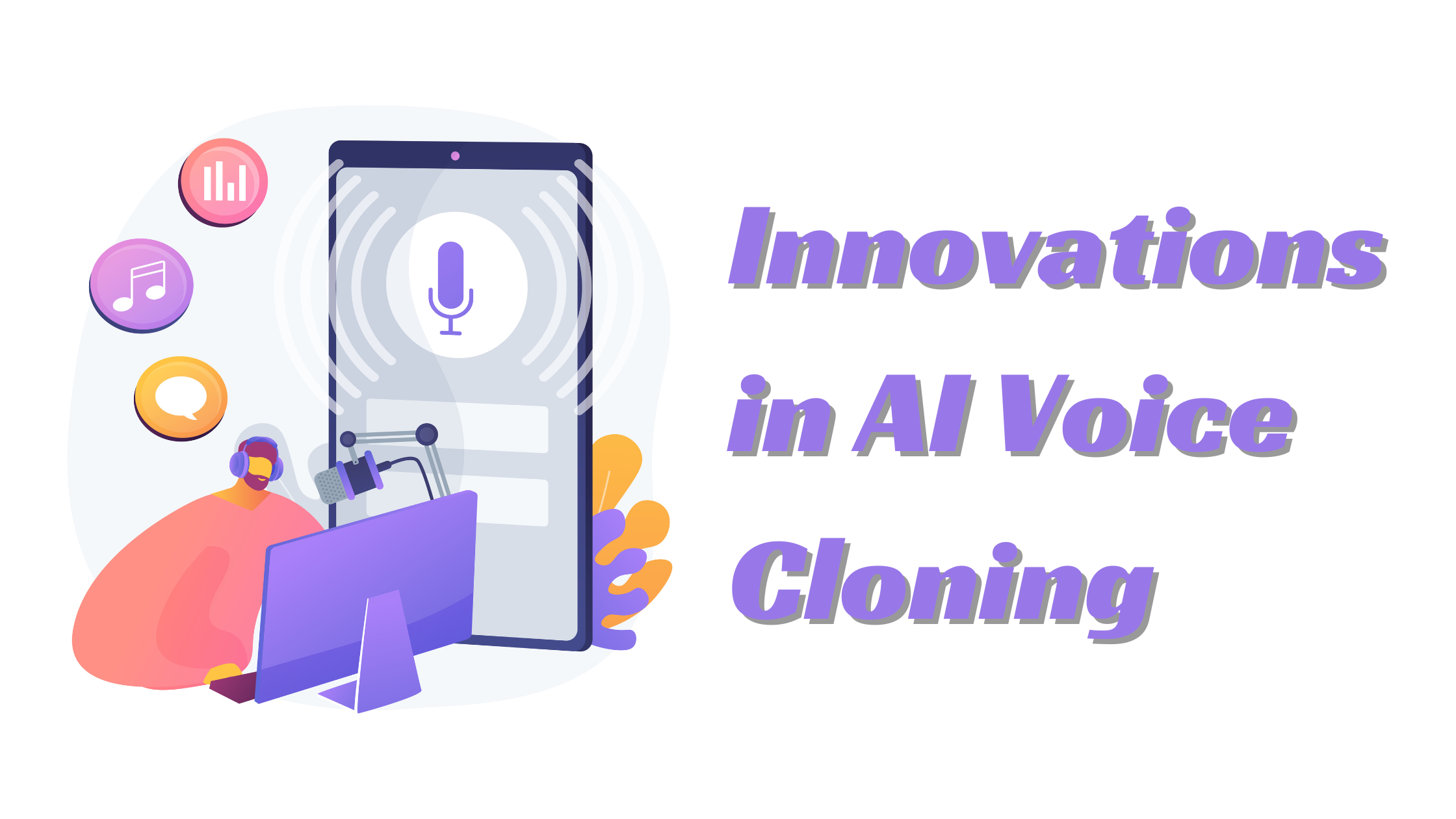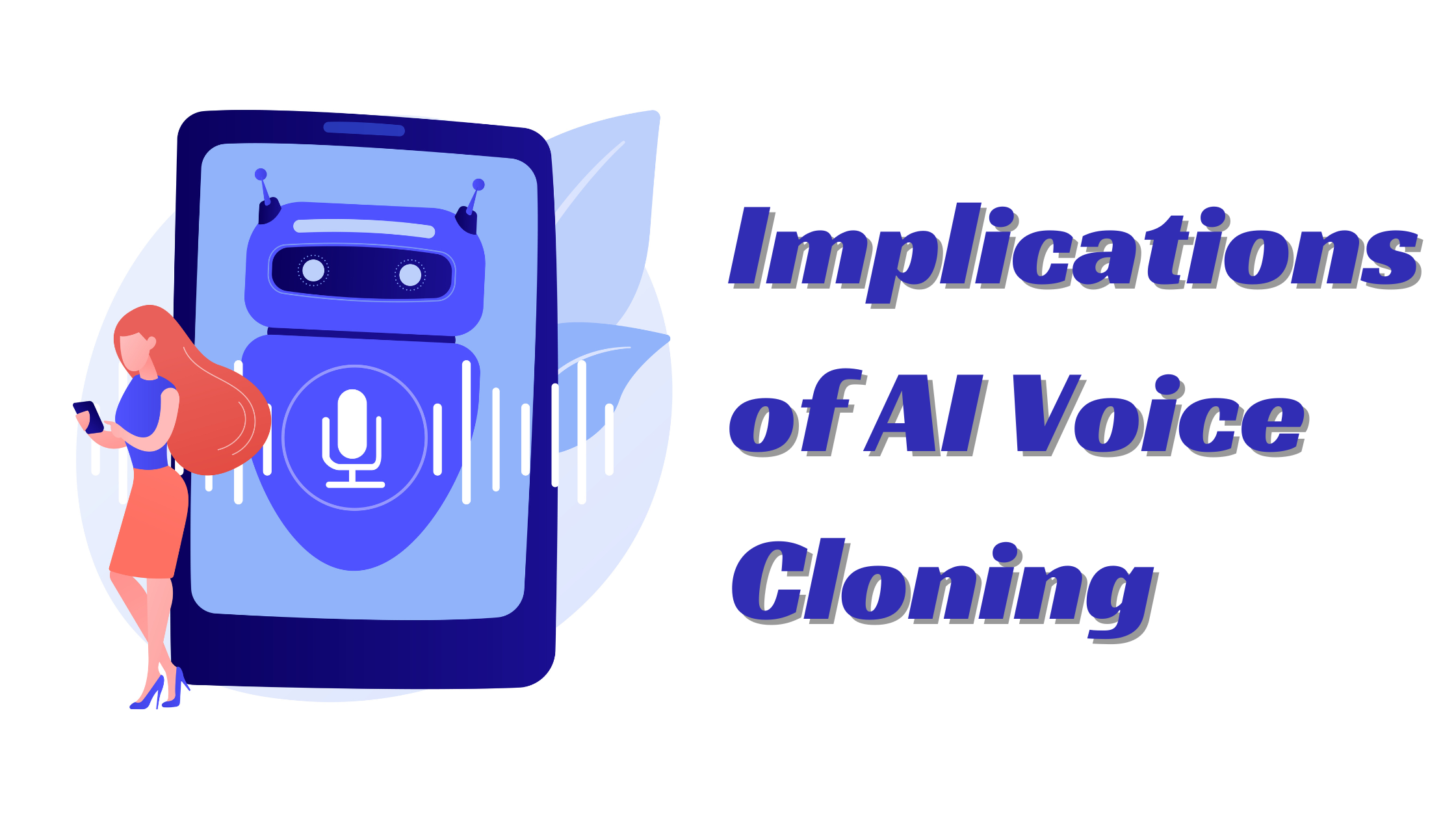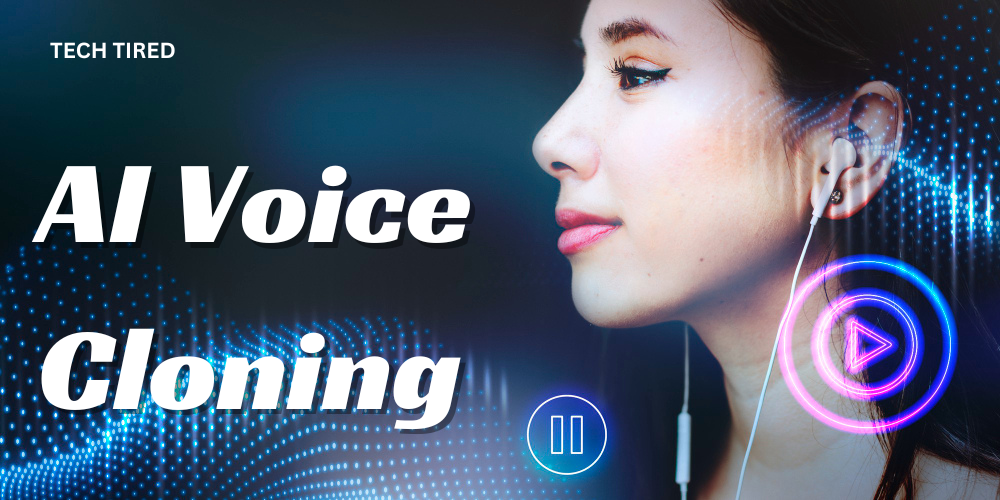AI Voice Cloning: Innovations and Implications for the Tech Industry
- 1 Understanding AI Voice Cloning
- 2 Innovations in AI Voice Cloning
- 2.1 Improved Realism and Accuracy
- 2.2 Customisation and Personalisation
- 2.3 Real-time Voice Cloning
- 2.4 Free AI Voice Cloning Tools
- 3 Applications of AI Voice Cloning in the Tech Industry
- 3.1 Entertainment and Media
- 3.2 Customer Service
- 3.3 Healthcare
- 3.4 Education
- 4 Implications of AI Voice Cloning
- 5 Future of AI Voice Cloning
- 6 Conclusion
Artificial intelligence (AI) has advanced fast over the last decade, pushing the limits of what technology is capable of. One of the most intriguing advancements in this field is AI voice cloning. This technology enables the creation of very realistic and customizable synthetic voices, revolutionizing industries ranging from entertainment to customer service. In this blog article, we’ll look at the advances driving AI voice cloning, the potential ramifications for the IT industry, and the growing trend of free AI voice cloning tools.
Understanding AI Voice Cloning
AI voice cloning uses deep learning algorithms to analyze and reproduce a person’s voice. By processing large datasets of recorded speech, AI systems may develop synthetic voices that imitate the actual speaker’s tone, pitch, and intonation with fantastic accuracy. This approach includes several critical technologies:
- Deep Neural Networks (DNNs): DNNs model the complexity of human speech, allowing AI to generate real-sounding voices.
- Natural Language Processing (NLP): NLP aids in comprehending and generating human language, enabling AI to produce coherent and contextually relevant speech.
- Generative Adversarial Networks (GANs): GANs enhance synthetic voices, increasing authenticity and minimizing artificial undertones.
Innovations in AI Voice Cloning

Improved Realism and Accuracy
The increased realism and accuracy of synthetic voices is one of the most significant advances in AI voice cloning. Early attempts at voice synthesis frequently produced monotone, artificial speech. However, with improvements in machine learning, today’s AI-generated sounds are nearly identical to human voices. Google, Amazon, and Microsoft have created voice cloning technology that can duplicate minor differences in speech, such as emotional tones and accents.
Customisation and Personalisation
AI voice cloning offers an excellent level of customization. Users can customize synthetic voices to reflect unique features, making them more personalized and engaging. This is especially beneficial in applications like virtual assistants, where a personalized voice may significantly improve the user experience. Businesses can also build brand-specific voices that correspond with their identity, guaranteeing consistency across all customer interactions.
Real-time Voice Cloning
Another ground-breaking breakthrough is real-time voice copying. This technique allows for real-time speech generation by creating synthetic voices on the fly. Real-time voice cloning has essential implications for live broadcasts, video games, and interactive applications, where immediate speech synthesis can improve the immersion experience.
Free AI Voice Cloning Tools
The democratization of AI technology has resulted in the creation of free AI voice cloning tools. These solutions give individuals and small organizations access to advanced voice copying capabilities without requiring a significant financial investment. Open-source programs and platforms such as Resemble AI, Descript, and iSpeech provide free or freemium approaches, allowing users to experiment with and integrate voice cloning into their projects.
Applications of AI Voice Cloning in the Tech Industry
Entertainment and Media
AI voice cloning is revolutionizing the entertainment industry by allowing the generation of synthetic voices for animated characters, dubbing, and voiceovers. This technology enables the seamless integration of voices from multiple languages and places, making material more accessible worldwide. Furthermore, voice cloning can resurrect the voices of deceased actors, ensuring continuity in long-running series or posthumously released works.
Customer Service
In customer service, AI voice cloning can improve the capabilities of virtual assistants and chatbots. These AI-powered systems can provide better customer experiences by using a more human-like voice and responding to requests with greater empathy and efficiency. Personalized voices can also strengthen consumer relationships, increasing satisfaction and loyalty.
Healthcare
AI voice cloning has potential applications in healthcare, especially for individuals with speech disability. Patients can regain functional communication skills by developing synthetic voices that resemble their native voices. Additionally, telemedicine can use voice cloning to add a personal touch to remote consultations.
Education
AI voice cloning can help educators develop interactive and engaging learning experiences. Synthetic voices can narrate educational information, provide feedback, and aid in language learning by producing consistent and precise pronunciations. This technology can also create personalized learning aids tailored to each student’s needs.
Implications of AI Voice Cloning

Ethical Consideration
The rise of AI voice cloning raises numerous ethical concerns. One of the main issues is the possibility of abuse, such as making deepfake audio clips that can be used to deceive or manipulate. Robust legislative frameworks and explicit permission and data privacy norms must be in place to ensure this technology is used ethically.
Intellectual Property
AI voice cloning creates issues about intellectual property rights. Who owns the rights to a synthetic voice, especially if it sounds like a natural voice? Establishing legal protections and procedures will be critical in dealing with these challenges and avoiding the unauthorized use of cloned voices.
Impact on Employment
The broad deployment of AI voice cloning could impact voice acting and customer service jobs. While AI can complement human capabilities, job displacement is risky. Examining strategies for reskilling and upskilling employees to adapt to the changing landscape is critical.
Future of AI Voice Cloning
As AI voice cloning technology advances, we should expect more improvements in realism, customization, and accessibility. More sophisticated algorithms and processing power will enable progressively more convincing synthetic voices to be fabricated. Furthermore, the trend towards open AI voice cloning tools will increase access, allowing for more experimentation and innovation.
The future of AI voice cloning holds enormous promise for improving human-computer interactions and generating more immersive and personalized experiences. We may use this technology to create beneficial change in various industries by addressing ethical and legal issues.
Conclusion
AI voice cloning is a revolutionary discovery that is altering the IT sector. This technology has numerous applications, from improving customer service to revolutionizing entertainment and media. With the introduction of free AI voice cloning tools, more people and organizations may investigate and benefit from this technology. However, careful consideration of the ethical and legal ramifications is required to ensure responsible and equitable use. As we look to the future, AI voice cloning promises to open up new possibilities and change how we engage with technology.

















